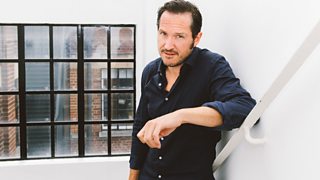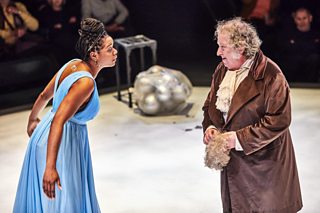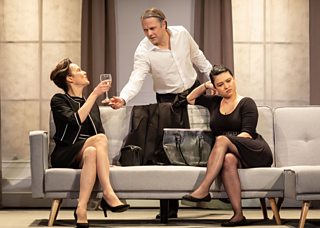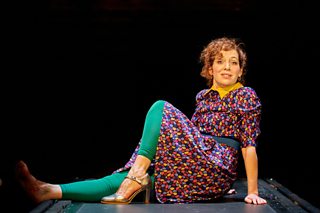Why I Created Lockdown Theatre Festival
Actor Bertie Carvel set up Lockdown Theatre Festival as a positive response to the coronavirus crisis, which has forced theatres all over the world to close, with no knowing when - or, in some cases, if - they will reopen.
Here he explains why he started this festival and the important questions it raises.
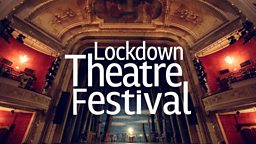
Lockdown Theatre Festival takes fully realised stage productions that had their runs suddenly cut short by COVID-19 and brings them to the airwaves. Contributors were linked up via the internet to record “down the line” from isolation.
In the early recording sessions, before anyone knew we could pull this off, I was fond of saying (to instil confidence, or perhaps to manage expectations) that it shouldn’t sound too good, that it needed to have a scratched together quality to make audiences appreciate the difficulty of what we were doing, and so to reflect on the challenges we are facing as an industry. Brecht would have approved.
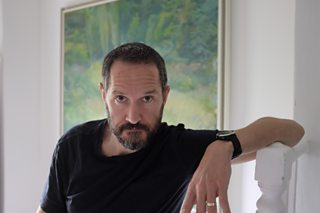
Maybe we’ve failed there, because to my ear the final results are stunningly good. That’s thanks to the insanely hard work and ingenuity of everyone involved: from the sound wizards at Reduced Listening to the passionate custodians of our partnering theatres — and of course the actors and creative teams whose work we are honoured to present.
But those challenges are real. The coronavirus pandemic has forced theatres all over the world to close, with no knowing when — or in some cases if — they will reopen. Since I began work on this project on the Ides of March, the Nuffield Southampton Theatres have gone into administration, the Edinburgh Lyceum has gone into ‘hibernation’ and a chorus of industry leaders have gone into overdrive to communicate the gravity of the situation. Even after the infection rate spikes and the R-number is brought under control, is anyone going to want to sit in a crowded auditorium, cheek by jowl with strangers? That coming together is the very essence of theatre — the sharing of physical space as well as stories — so we face a truly existential crisis.
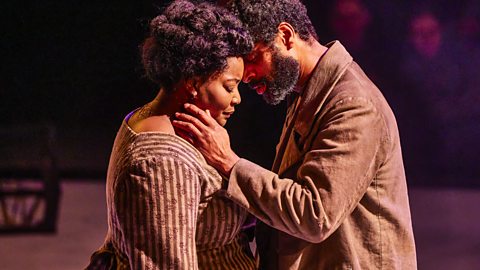
Backstage at Rockets and Blue Lights
Winsome Pinnock and Miranda Cromwell talk about the production of Rockets and Blue Lights
Lockdown Theatre Festival is an attempt to respond positively and creatively to that crisis. It is an opportunity to celebrate the richness of our theatrical culture and at the same time an invitation to consider how on earth we can weather this storm.
Lockdown Theatre Festival is an attempt to respond positively and creatively.... It is an opportunity to celebrate the richness of our theatrical culture and at the same time an invitation to consider how on earth we can weather this storm.
I remember learning at school about the Tragic Cycle. A hero is in crisis: at a critical turning point. They undergo a reversal of fortune (peripeteia), leading eventually to self-awareness (anagnorisis), offering an opportunity for redemption, or at least resolution. It feels as though Theatre itself is experiencing peripeteia.
At this time when the immediate future looks so bleak for theatre workers, we have an opportunity to reflect, and perhaps to reshape the industry of the future so that it is more inclusive, more reflective of modern Britain — so that it truly holds the mirror up to nature, rather than to an adaptive but exclusive elite.
But if we are to rebuild at all we will need a serious commitment to strategic investment from government — and that means vocal support from the public whose opinion sets its agenda. Do we value our theatrical heritage, that stretches back through Shakespeare to medieval mystery plays like Everyman, but which also nourishes and nurtures the poets of the future; and do we want to see every man — and woman — represented on a stage in coming years?
-
![]()
The Future of Theatre
Radio 3's Free Thinking discuss with Bertie Carvel and Roy Alexander Weise
If so, we need to find creative ways to vault the unprecedented hurdles that this pandemic has introduced. But we also need to get serious about the economic factors underlying the elitism that still pervades British culture. We’ve worked hard in recent years to make the industry more inclusive and I believe there is a genuine will to change. But in 2020 it is still all but impossible to carve out a career in the arts unless you have some money behind you, because, at nearly every level, wages are too low and too precarious. We need to address this honestly if we want the theatre to renew itself, rather than to retrench.
I don’t have the answers, but our community surely does. If we are experiencing peripeteia, surely we can find our way to anagnorisis? That's why we are launching #LockdownTheatreSymposium on social media, in the belief that transformational self-knowledge and redemption are possible, if only we include all the stakeholders and listen hard enough to their voices. Please get involved.
To join the conversation, post your vision for the future of Theatre on social media, using the hashtag #LockdownTheatreSymposium.
